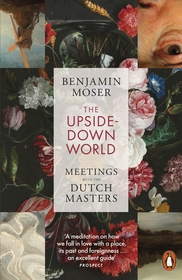
Execution Culture in Nineteenth Century Britain
From Public Spectacle to Hidden Ritual
Sorozatcím: Routledge SOLON Explorations in Crime and Criminal Justice Histories;
-
20% KEDVEZMÉNY?
- A kedvezmény csak az 'Értesítés a kedvenc témákról' hírlevelünk címzettjeinek rendeléseire érvényes.
- Kiadói listaár GBP 145.00
-
69 273 Ft (65 975 Ft + 5% áfa)
Az ár azért becsült, mert a rendelés pillanatában nem lehet pontosan tudni, hogy a beérkezéskor milyen lesz a forint árfolyama az adott termék eredeti devizájához képest. Ha a forint romlana, kissé többet, ha javulna, kissé kevesebbet kell majd fizetnie.
- Kedvezmény(ek) 20% (cc. 13 855 Ft off)
- Kedvezményes ár 55 419 Ft (52 780 Ft + 5% áfa)
Iratkozzon fel most és részesüljön kedvezőbb árainkból!
Feliratkozom
69 273 Ft

Beszerezhetőség
Becsült beszerzési idő: A Prosperónál jelenleg nincsen raktáron, de a kiadónál igen. Beszerzés kb. 3-5 hét..
A Prosperónál jelenleg nincsen raktáron.
Why don't you give exact delivery time?
A beszerzés időigényét az eddigi tapasztalatokra alapozva adjuk meg. Azért becsült, mert a terméket külföldről hozzuk be, így a kiadó kiszolgálásának pillanatnyi gyorsaságától is függ. A megadottnál gyorsabb és lassabb szállítás is elképzelhető, de mindent megteszünk, hogy Ön a lehető leghamarabb jusson hozzá a termékhez.
A termék adatai:
- Kiadás sorszáma 1
- Kiadó Routledge
- Megjelenés dátuma 2020. november 30.
- ISBN 9780367332457
- Kötéstípus Keménykötés
- Terjedelem218 oldal
- Méret 234x156 mm
- Súly 560 g
- Nyelv angol
- Illusztrációk 9 Illustrations, black & white; 9 Halftones, black & white 116
Kategóriák
Rövid leírás:
This edited collection offers multi-disciplinary reflections and analysis on a variety of themes centred on nineteenth century executions in the UK, many specifically related to the fundamental change in capital punishment culture as the execution moved from the public arena to behind the prison wall.
TöbbHosszú leírás:
This edited collection offers multi-disciplinary reflections and analysis on a variety of themes centred on nineteenth century executions in the UK, many specifically related to the fundamental change in capital punishment culture as the execution moved from the public arena to behind the prison wall. By examining a period of dramatic change in punishment practice, this collection of essays provides a fresh historical perspective on nineteenth century execution culture, with a focus on Scotland, Wales and the regions of England.
From Public Spectacle to Hidden Ritual has two parts. Part 1 addresses the criminal body and the witnessing of executions in the nineteenth century, including studies of the execution crowd and executioners’ memoirs, as well as reflections on the experience of narratives around capital punishment in museums in the present day. Part 2 explores the treatment of the execution experience in the print media, from the nineteenth and into the twentieth century.
The collection draws together contributions from the fields of Heritage and Museum Studies, History, Law, Legal History and Literary Studies, to shed new light on execution culture in nineteenth century Britain. This volume will be of interest to students and academics in the fields of criminology, heritage and museum studies, history, law, legal history, medical humanities and socio-legal studies.
'Execution Culture offers a series of intriguing case studies in the ways that an absence becomes present in a culture.'
- Michael Meranze, University of California, Los Angeles
TöbbTartalomjegyzék:
Introduction
Chapter 1, ‘[T]he broken stave at the top of the ladder of England’s civilisation’: Representing the ending of public execution in 1868.
James Gregory
PART 1: Going to See a Man Hanged:
Chapter 2, ‘A practice which wounds only the living’: Publicly Punishing the Criminal Body in Nineteenth-Century Scotland.
Rachel Bennett
Chapter 3, ‘Every Loathsome Reptile Form of Vice and Crime’. Formulations of the Nineteenth-Century London Execution Crowd: Fears, Fictions and Realities.
Matthew White
Chapter 4, ‘How Murderers Die’: The Impact of the 1868 Abolition of Public Execution on Life-writing by Executioners.
Katherine Ebury
Chapter 5, ‘Stand in the place of those executed’: Interpreting Capital Punishment in UK Prison Museums.
Rhiannon Pickin
PART 2: ‘One had better narrate the circumstances as they occurred’
Chapter 6, ‘[…] were sensation our object, it would not be difficult to cull from the Newgate Calendar’: Periodical Journalism and Distaste for Public Executions, c. 1830-1870.
Samuel Saunders
Chapter 7, George Vass: the making and un-making of a criminal monster.
Helen Rutherford and Clare Sandford-Couch
Chapter 8, The ‘Hermetically sealed’ Prison: Witnessing Executions in the North East of England 1868-1878.
Patrick Low
Chapter 9, The only consolation is that the criminal is not a Welshman: The foreign-born men hanged in Wales, 1840-1900.
Stephanie Emma Brown
Index
Több


Von der Souveränität: Ein Anti-Gesellschaftsvertrag
10 327 Ft
9 810 Ft









